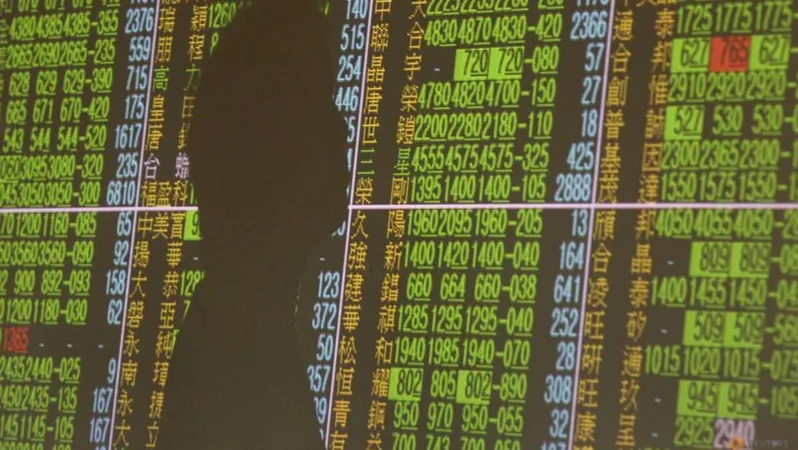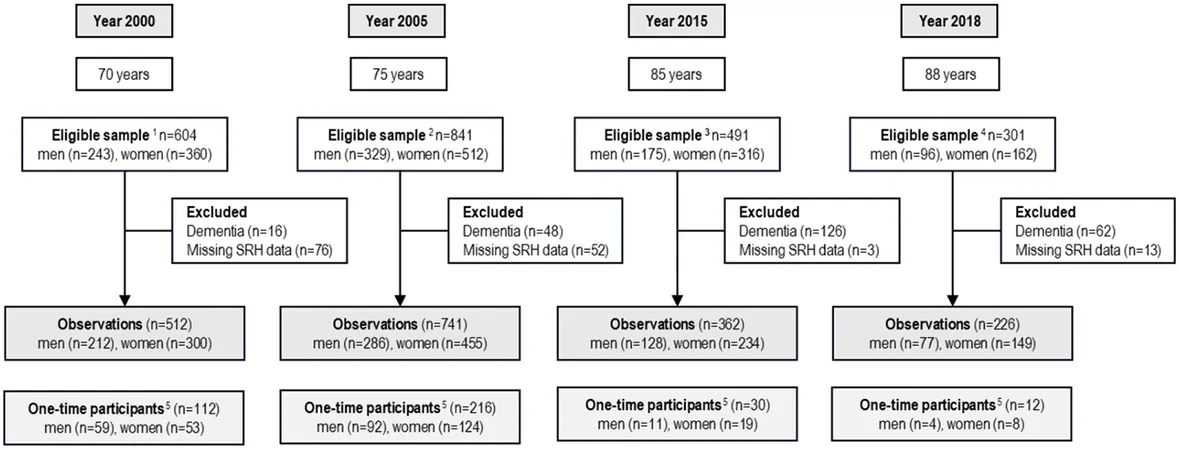
Taiwan Implements Urgent Short-Selling Restrictions Amid US Tariff Crisis
2025-04-06
Author: Arjun
Taiwan's Financial Supervisory Commission Responds to US Tariff Crisis
In a decisive response to the escalating trade tensions following new import tariffs imposed by U.S. President Donald Trump, Taiwan's Financial Supervisory Commission announced temporary short-selling curbs on Sunday. This measure is designed to mitigate potential market upheaval and bolster the stability of Taiwan's capital markets.
Details of the Short-Selling Curbs
Effective Monday and lasting through Friday, the commission will limit the number of shares available for short-selling and increase the minimum short-selling margin ratio from 90% to an alarming 130%. These regulatory changes highlight Taiwan’s commitment to maintaining a stable financial environment in light of external pressures.
Understanding Short-Selling
Short-selling is a trading strategy where investors borrow shares they anticipate will decrease in value, aiming to repurchase them at a reduced price and return them to the lender, pocketing the profit margin. With the Taiwan stock market set to reopen on Monday after a holiday break, investors have yet to react to the tariffs, which have already sent global markets into a tailspin, with the S&P 500 losing a staggering $5 trillion in just two days.
Concerns Over Market Stability
The Financial Supervisory Commission expressed concerns that these tariffs will create substantial uncertainties for market stability, stating, "We will continue to monitor international financial developments and adjust the measures as necessary.” The deputy head of the commission's Securities and Futures Bureau, Kao Ching-ping, emphasized that the new regulations signal that speculative short selling is unwelcome in Taiwan, further underscoring the nation's proactive stance in safeguarding its economic interests.
Impact of US Tariffs on Taiwan
Taiwan, recognized as the world’s largest producer of advanced semiconductors, is facing a hefty 32% tariff under Trump's latest trade policies, placing significant strain on its robust trade surplus with the United States. Consequently, experts anticipate notable pressure on the Taiwan dollar against the U.S. dollar, particularly due to expected declines in the local stock market and potential foreign capital withdrawal.
Reassurance from Taiwan's Central Bank
However, a source close to the situation reassured that Taiwan’s ample foreign currency reserves will provide a buffer for the central bank, enabling it to manage the impact on the Taiwan dollar during the impending market re-opening. The central bank remains confident in its ability to stabilize the exchange rate, despite the ongoing volatility.
Current Market Conditions
As of now, the Taiwan dollar has already slipped approximately 0.9% against the greenback this year, while the benchmark stock index has plummeted 7.5% since the beginning of the year. The upcoming week will be critical for observers worldwide as Taiwan navigates the turbulent waters of international trade relations and market fluctuations.
Conclusion
Stay tuned for more updates as Taiwan braces for what could be a financially tumultuous Monday!




 Brasil (PT)
Brasil (PT)
 Canada (EN)
Canada (EN)
 Chile (ES)
Chile (ES)
 Česko (CS)
Česko (CS)
 대한민국 (KO)
대한민국 (KO)
 España (ES)
España (ES)
 France (FR)
France (FR)
 Hong Kong (EN)
Hong Kong (EN)
 Italia (IT)
Italia (IT)
 日本 (JA)
日本 (JA)
 Magyarország (HU)
Magyarország (HU)
 Norge (NO)
Norge (NO)
 Polska (PL)
Polska (PL)
 Schweiz (DE)
Schweiz (DE)
 Singapore (EN)
Singapore (EN)
 Sverige (SV)
Sverige (SV)
 Suomi (FI)
Suomi (FI)
 Türkiye (TR)
Türkiye (TR)
 الإمارات العربية المتحدة (AR)
الإمارات العربية المتحدة (AR)